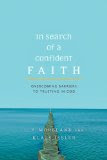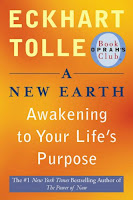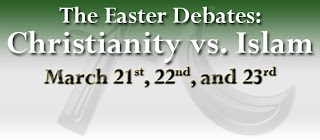People Will Live What They Believe – Part One
“People may not always live what they profess, but they will always live what they believe.” Neil T. Anderson, Victory Over the Darkness, pg.124. Anderson’s powerful words hit at the very heart of the Christian’s life. It is one thing to live your life while professing Christianity. It is yet another thing to live your life believing the Christian message to be the truth about reality. To believe that Jesus was actually God entails some transforming factors: 1) God is real; there is more than just the natural world; 2) God has been, is, and will be active in the lives of his creation; and 3) What God says about us is the truth about us. 1) I still think many Christians have a difficult time with this first point. We are so inundated by naturalistic biases that we begin to question why it is that we think there is something other than strictly matter (these biases, related to “plausibility structures,” are aptly covered in the book, “In Search of a Confident Faith” by Moreland and Issler.) Doubt is not the problem here. Many people will have doubts, as can be seen even in the Scriptures; in the case of Thomas questioning Jesus (John20:25-28), and in the case of Paul and the Bereans (Acts 17: 10-12). The problem is the response to doubt. An inappropriate response would be to allow the doubt to continue without a proper investigation into both sides of the concerning issue. Then the doubt can become an emotional commitment without proper reasoning or without being intellectually honest. An appropriate response would be to read arguments on both sides of the issue causing the doubt—in this case in the area of metaphysics (metá = beyond, physiká = physical)—and to grapple with the arguments presented. There are many articles and books at differing levels for a person to begin their investigation; from a very introductory level to a very experienced level. Christians, who doubt, need to be honest with themselves and deal with the reality of God’s existence. Why do they believe God is real? What has brought them to this knowledge? Can they articulate that belief? In order to live like God is real, we first must believe the foundational premise that God is real. When Thomas was presented with reasonable evidence, he professed Jesus as God. When the Bereans were presented with a case for Jesus as God, they went home and checked it out for themselves; with many then professing Jesus as God. Without establishing each argument, a quick list of arguments for God’s existence to check out include: 1. The Cosmological Argument – Kalam Cosmological Argument – Thomist Cosmological Argument – Leibnizian Cosmological Argument 2. The Design Argument – The Anthropic Principle – Information as Design – Irreducible Complexity 3. The Moral Argument – Relativism – Conventionalism – Ethical Subjectivism – Objective Morality – Where Do Morals Come From? 4. The Argument from Consciousness 5. The Argument from Beauty 6. The Argument from Evil A good beginning resource for these arguments is The Holman Quicksource Guide to Christian Apologetics by Doug Powell of www.selflessdefense.com. Most of the arguments listed plus the argument from consciousness (from the mind) and the argument from beauty can be found in Scaling the Secular City by J.P. Moreland; along with many more not mentioned here. I have listed these arguments because it is important that Christians know there are numerous arguments that deal directly with the existence of God; not as a thorough treatment of any argument. I’ll continue with the points two and three later. MJ





